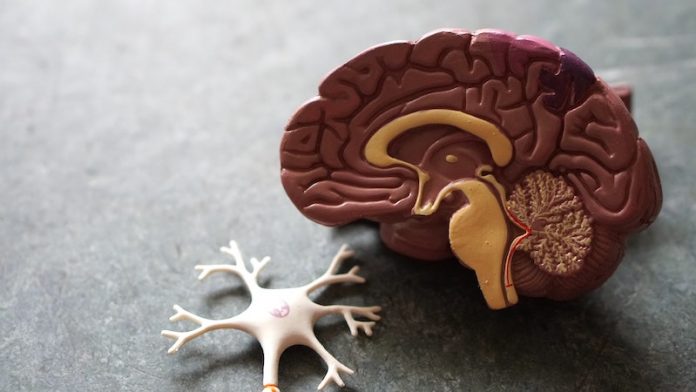
Depressive disturbances are among the most frequent illnesses worldwide. The causes are complex and to date only partially understood. The trace element lithium appears to play a role.
In a new study from the Technical University of Munich, researchers found that the distribution of lithium in the brains of depressive people is different from the distribution found in healthy people.
They found there is much more lithium present in the white matter of the healthy person than in the gray matter.
By contrast, people with depression may have a balanced distribution, without a measurable systematic difference.
Lithium is familiar to many of us from rechargeable batteries. Most people ingest lithium on a daily basis in drinking water.
Previous studies have shown that a higher natural lithium content in drinking water coincides with a lower suicide rate among the population.
In much higher concentrations lithium salts have been used for decades to treat mania and depressive disturbances. However, the exact role lithium plays in the brain is still unknown.
In the study, the team developed a method that can be used to precisely determine the distribution of lithium in the human brain.
They examined the brain of a suicidal patient and compared it with two healthy people. They focused on the ratio of the lithium concentration in white brain matter to the concentration in the gray matter of the brain.
In order to determine where how much lithium is present in the brain, the researchers analyzed 150 samples from various brain regions—for example, those regions which are presumably responsible for processing feelings.
They found that there was significantly more lithium present in the white matter of the healthy person than in the gray matter.
By contrast, the suicidal patient had a balanced distribution, without a measurable systematic difference.
These results are groundbreaking because scientists were able for the first time to ascertain the distribution of lithium under physiological conditions.
The researchers assume that lithium indeed has an important function in the body.
They say it might then also be possible to answer the question as to whether the deviating lithium distribution in depressive persons is a cause or a result of the illness.
If you care about depression, please read studies about long-term use of depression drug may cause addiction and findings of single dose of this psychedelic drug may reduce depression, anxiety for years.
For more information about depression treatment and prevention, please see recent studies about long-term use of depression drug may increase risk of type 2 diabetes and results showing that this therapy could benefit people with depression, chronic pain.
The study is published in Scientific Reports. One author of the study is Dr. Roman Gernhäuser.
Copyright © 2021 Knowridge Science Report. All rights reserved.



